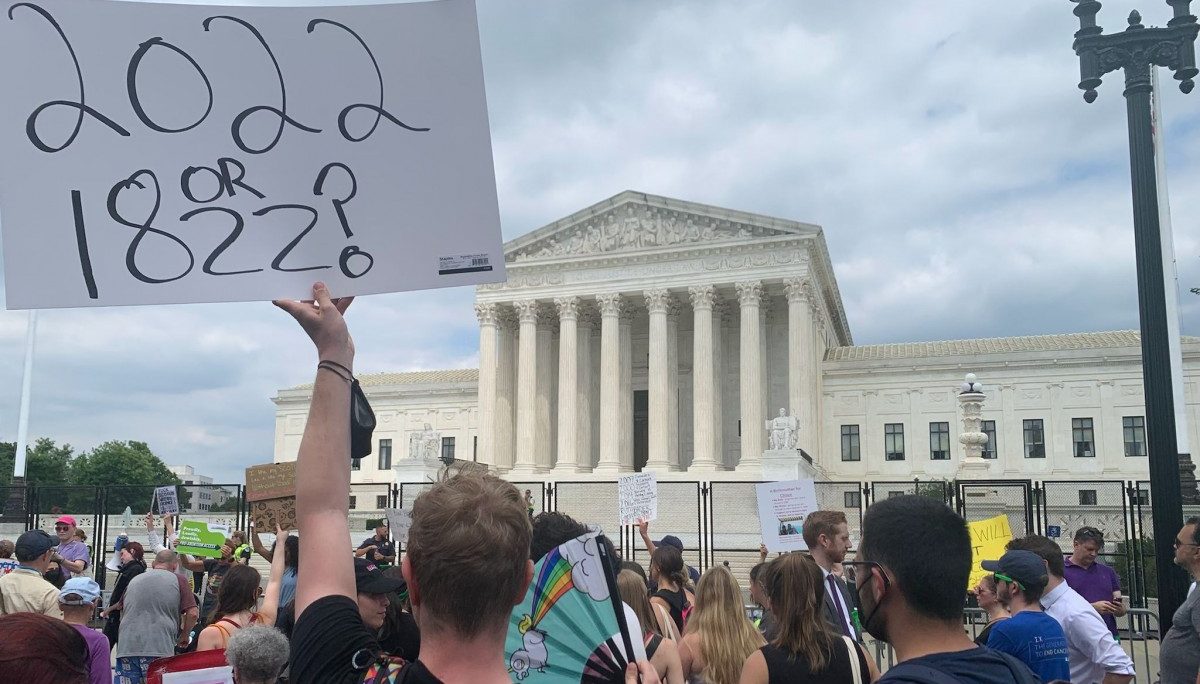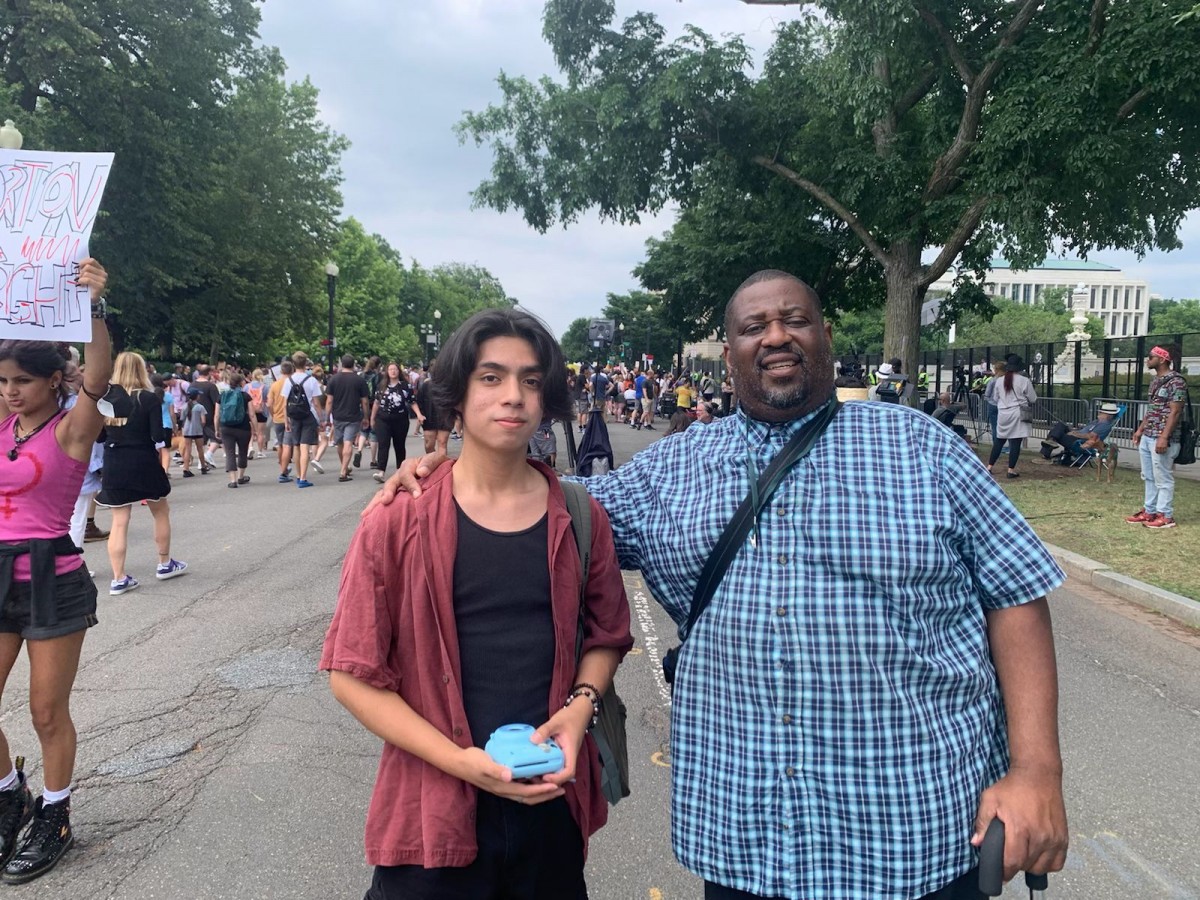By VoicesofTomorrow.news
From high school students to elected officials, people around the country expressed shock and shared various opinions on the U.S. Supreme Court’s 6-3 vote on Friday against the constitutional right to an abortion.
“The Constitution does not confer a right to abortion,” Justice Samuel Alito wrote in the majority opinion against Dobbs v. Jackson Women’s Health Organization, a Mississippi clinic in a case that now opens the door for states seeking to control reproductive rights. This decision overrules previous opinions in Roe v. Wade (1972) and Planned Parenthood of Southeastern Pa. v. Casey (1992). Roe and Casey use the 14th Amendment due process clause. Dobbs contests Mississippi’s 15-week restriction on abortion.
Citing the right of choice enumerated and reaffirmed in Roe and Casey, Justices Stephen Breyer, Sonia Sotomayor and Elena Kagan argued in their dissenting opinion that respect of women as full citizens included giving them choice on these personal, consequential decisions.
Despite the initial ruling to protect abortion rights nearly 50 years ago, a draft opinion leaked in early May suggested that the Supreme Court was ready to overturn Roe v. Wade, sparking outrage from abortion advocates throughout the nation.
“People need to find common ground,” said Don Folden, 68, as he observed an open-air debate with a priest escalate into a curse-filled argument in front of the U.S. Supreme Court building.
“We have to stop hating each other,” said Folden, a longtime D.C. activist, who calls himself the Truth Conductor. “A lot of these folks have family members who don’t even speak to them.”
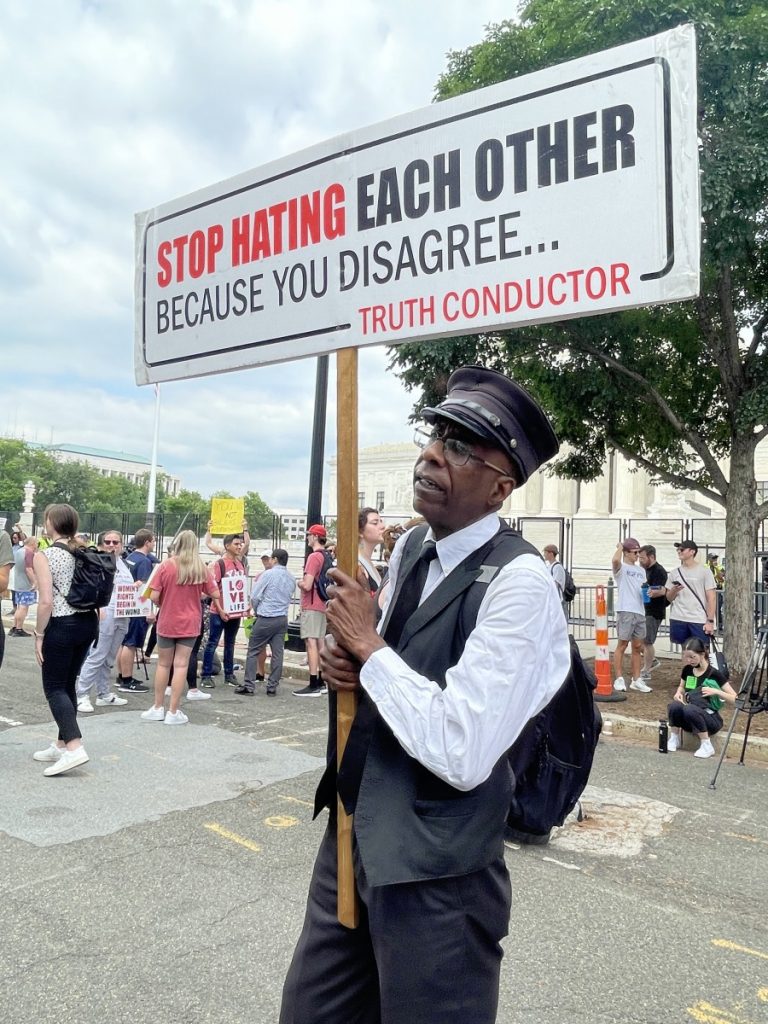
“If we all hate on each other, we will destroy everyone.“
– Don Folden, “Truth Conductor”
Photo: Fernando Vasquez-Carino/VoicesofTomorrow.news)
The Metropolitan Police Department fully activated officers outside the Supreme Court through June 28 in anticipation of ongoing First Amendment demonstrations. A fence and barricade surrounded the building in the heart of the nation’s capital, preventing demonstrators from gathering on the steps. First Street was closed to vehicular traffic with security and cops, gates and cones.
“Washington, D.C., is a proud pro-choice city and access to abortion is still legal here,” Mayor Muriel Bowser tweeted. “This is about health care. This is about women’s rights. This is about bodily autonomy. A majority of Americans believe in a woman’s right to choose. This fight is urgent but not over.”
Former President Barack Obama also tweeted this morning minutes after Bowser: “Today, the Supreme Court not only reversed nearly 50 years of precedent, it relegated the most intensely personal decision someone can make to the whims of politicians and ideologues — attacking the essential freedoms of millions of Americans.”
Aria Harris, 31, a resident of New Carrollton, Maryland, called the court’s action a short-sighted decision. “I personally feel that it’s a travesty in terms of human rights,” Harris said. “There needs to be more empathy on the part of the Supreme Court, and I hope that they reconsider their decision.”
Monica Palacio, who ran for the D.C. Council, is shocked and scared about what has been done. “So many women are going to be deeply affected by this, and I’m terrified for young women who have been a victim of sexual violence and young women who were in situations where the condom broke and they’re not ready.”
Palacio fears that the lack of information some girls have will put them at risk. “Now more than ever schools need to take Sex Ed more seriously.”
She also emphasizes the risks for poor women. “If you’re wealthy you can have an abortion, but if you’re not, you’re more vulnerable to dangerous solutions.”
“Women with resources in Texas can get on an airplane and fly somewhere else, but women without means are not going to be able to do that.”
Nachama Wilker, deputy director for the National Disability Rights Network
Calling this a “momentous occasion,” a Catholic pro-lifer named Chris said the Supreme Court’s intent is “not the complete eradication of Roe, but to bring the power back to the states.”
“You have to take accept all facts of science, including biology, and truth that life begins in the womb,” he said. “Thank God for this decision, but there’s still a lot more that needs to be done. We need to really look after women who are perhaps in crisis pregnancies — even taking a step back to prevent the circumstances that lead to that.”
“For anyone to come here, thump their chest and walk away saying what a great victory and then never do anything again, that’s a disservice and hypocrisy.”
Signs of today’s decision have been visible for years. In the 2016 final presidential debate, for example, Donald Trump and Hillary Clinton were asked “Do you want the court, including the justices that you will name to overturn Roe v. Wade, which includes, in fact states, a women’s right to abortion?”
“I am pro life, and I will be appointing pro-life judges,” Trump responded. “If they overturned it, it would go back to the states.” Trump appointed three justices who were part of the majority: Amy Coney Barrett, Neil Gorsuch and Brett Kavanaugh. He has appointed more Supreme Court justices and federal judges than any president since Ronald Reagan. Trump appointees have been part of decisions on reproductive issues across the country.
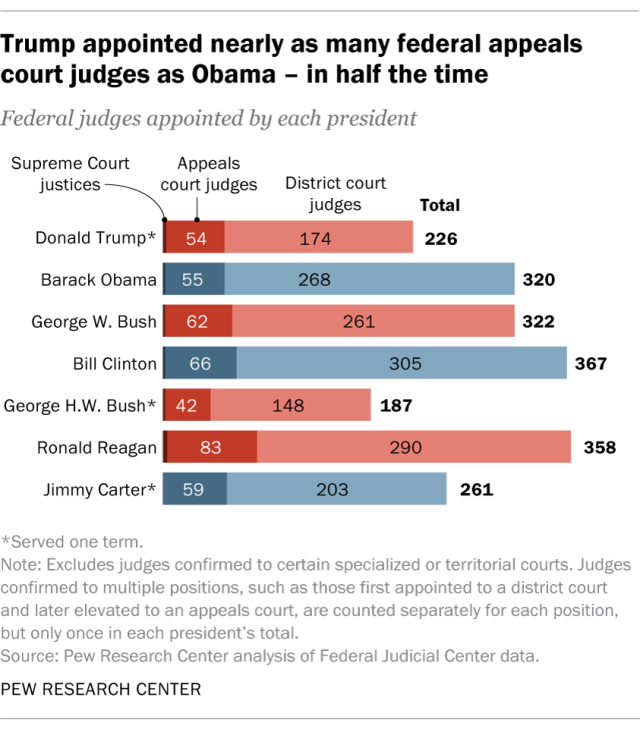
Trump’s fellow Republicans praised the Supreme Court’s actions, such as Senators Roger Wicker of Alabama and Richard Shelby, formerly a Democrat, of Mississippi.
“This momentous day for our nation, and Mississippi led the charge,” Wicker tweeted. “This decision is an answered prayer, marking the beginning of the next chapter in our fight to protect the unborn.”
Shelby also used Twitter and stated: “Today, SCOTUS reversed its 1973 Roe v. Wade decision, which I have long believed was unconstitutional. This is welcome news. It is our moral and ethical duty to protect the dignity of human life, particularly when it comes to the unborn.”
Republican Gov. Larry Hogan of Maryland said he personally doesn’t agree with the decision, but he will not go against abortion rights.
Like Presidents Biden and Obama, many Democrats opposed the court’s actions. If 70% of the U.S. believes in Roe v. Wade, asked Illinois Sen. Tammy Duckworth, why would the Supreme Court overturn it?
“I am outraged by the Supreme Court’s decision today,” D.C. Delegate Eleanor Holmes Norton said in a statement. “Congress must immediately codify the right to abortion in federal law. The decision is also a reminder to the country that D.C.’s lack of statehood means D.C. is subject to the whims of Congress.”
The Rev. Raphael Warnock, who is running against Trump supporter and former football player Herschel Walker to continue representing Georgia in the U.S. Senate, voiced his frustrations on Twitter earlier this afternoon. “I’m outraged by the Supreme Court’s decision,” Warnock said. “As a pro-choice pastor, I’ll never back down from this fight. Women must be able to make their own health-care decisions, not politicians.”
Sen. Jeanne Saheen of New Hampshire tweeted: “ I am angry and heartbroken by today’s Supreme Court decision. We knew this was coming but it doesn’t make it any easier. Elections have consequences, and I will never stop fighting for access to abortion and a woman’s right to choose.”
Letitia James, Attorney General of New York, also took to Twitter. “The Supreme Court’s vicious decision to overturn Roe v. Wade is one of the darkest moments in the history of this nation,” she tweeted. “Make no mistake: While other states strip away the fundamental right to choose, New York will always be a safe haven for anyone seeking abortion.”
Students Share Their Thoughts
“I’m not happy about it,” a 17-year-old pregnant student at Bowie High School in Maryland said of the Supreme Court’s vote. “It should be the woman’s choice. It was my choice to keep my baby, but I also should have the choice not to, especially considering I’m a minor.”
Senam Amevor, 19, a student at the College of William and Mary, had similar sentiments. “I am not a big fan of abortion,” she said, “but I do feel like it’s not fair for the government to be regulating what a woman does.”
Shara Griffith, a 16-year-old junior high school student from Southern Maryland, also isn’t a fan, but supports a ban on abortion. “It never should have been legal in the beginning,” she said. “We’re making progress. Finally people are getting decent morals and opinions.”
Tatyanna Nelson, a 16-year-old high school student in Georgia, is concerned about her future rights and the state of the country. “I fear for my rights,” she said. “Kids are a big responsibility, and the fact that I am in a Republican state makes this whole situation 10 times worse.”
“I feel like everyone’s response to the overturning of Roe v. Wade is that adoption is still available, but adoption isn’t always the best option. There are thousands of kids in the foster-care system living inadequate lives!”
Sarah Beckford, 18, a rising sophomore in college, had similar concerns. “A lot of kids go into the foster-care system and get abused, assaulted and come out even more messed up than they were before.” She suggests that government officials focus more on repairing the foster-care system than taking away her rights.

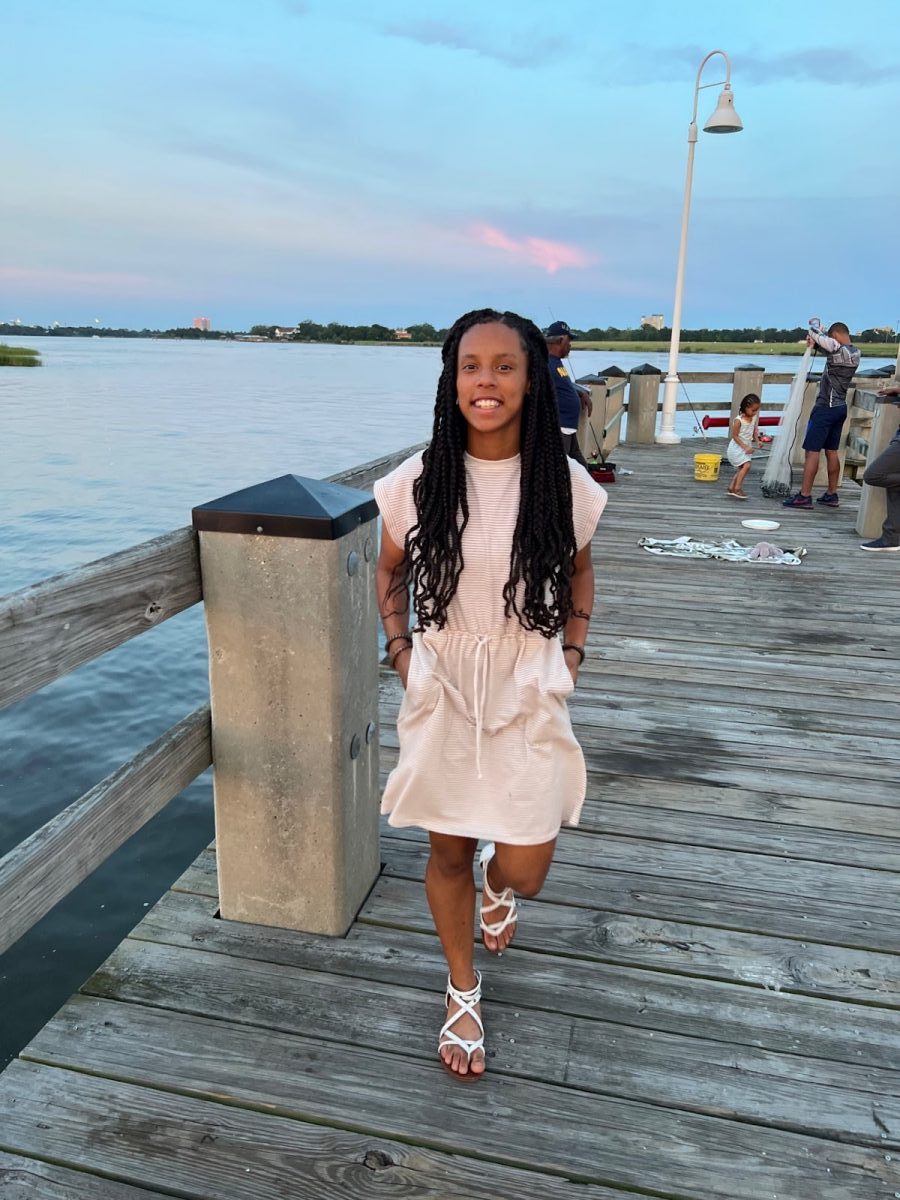

Taniyah Wright, a 17-year-old incoming college freshman, said “It’s very upsetting how people would rather ban abortion rather than putting resources out about sexual education. A lot of people don’t have access to that [type] of education and instead they want to upend a 50-year-old system.”
With the threat to abortion rights, more resources will be needed for children, Ms. Roberson puts strong emphasis on the need for resources and availability to get direct help for the support of children since they have banned abortion rights.
Kaitlyn Lee, 18, rising freshman at Binghamton University, believes that the country has taken a turn for the worse and that the demographic of the people in charge needs to change. “If we continue to give these older people the power to make decisions about our future and the percentage of young voters continues to remain low, then it’s only a matter of time before the LGBTQ community gets their rights taken away, too.”
Bellodgia Roberson, a senior majoring in crop and soil science at Langston University, also questions leadership across the nation. “Men should not control what women can do for their life,” she said. “I would rather abort a kid than gamble on their life.”
A Story Map of Selected States
The Majority Opinion
Justice Samuel Alito wrote the majority opinion against Dobbs v. Jackson Women’s Health Organization. This decision overrules previous opinions in Roe v. Wade (1972) and Planned Parenthood of Southeastern Pa. v. Casey (1992). Roe and Casey use the 14th Amendment due process clause. Dobbs contests Mississippi’s 15-week restriction on abortion.
The majority opinion states: “The Constitution does not confer a right to abortion; Roe and Casey are overruled; and the authority to regulate abortion is returned to the people and their elected representatives.”
Alito outlined the “185 years after the adoption of the Constitution,” where “each state was permitted to address this issue in accordance with the views of its citizens.” He emphasizes the Constitution’s neglect to mention abortion itself, and that Roe and Casey decided on it, despite proving that “American law or the common law had ever recognized such a right,”
The justice uses as his main defense of his decision that the decision made in Roe was more of a legislative proposal than a constitutional decision to be made by the Supreme Court.
Alito states that in Casey, the decision affirming Roe was made by using more of stare decisis, following previous decisions, than acknowledging the constitutionality of the issue, or seeking to revise the previous holding.
— Ashton Brown
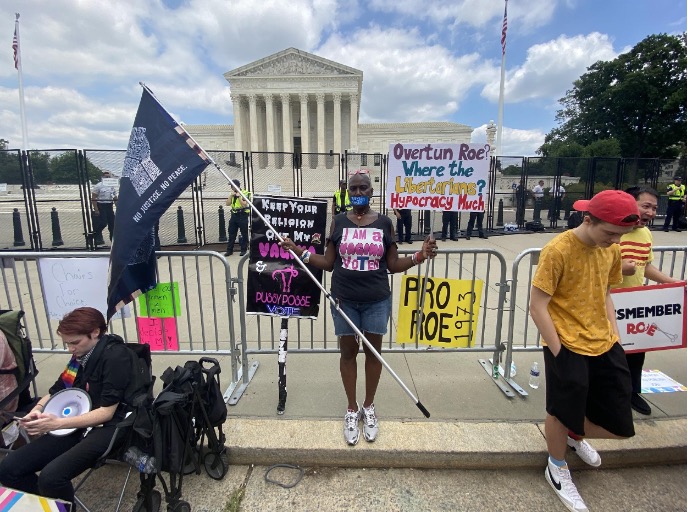
The Dissenting Opinion
Citing the right of choice enumerated and reaffirmed in Roe and Casey, Justices Stephen Breyer, Sonia Sotomayor and Elena Kagan argued that respect of women as full citizens included giving them choice on these personal, consequential decisions.
In their dissenting opinion, they provided background on the balance struck by Roe, which allowed the state to regulate abortion given its interests in “protecting the life of the fetus that may become a child.”
The original decision in Roe balanced the state’s interest with a woman’s perspective. The three dissenters pointed out that this decision strips away that delicate balance and the arguments around viability, including the lack of scope on the decision, which does not preclude a federal abortion ban from the moment of conception.
“A state can force her to bring a pregnancy to term, even at the steepest personal and familial costs,” they wrote. “An abortion restriction, the majority holds, is permissible whenever rational, the lowest level of scrutiny known to the law.”
They proceeded to detail the immediate consequences based on so-called “trigger bans” which would ban abortion in 13 states within 30 days.
“[States] have passed laws without any exceptions for when the woman is the victim of rape or incest,” they explained. “States may even argue that a prohibition on abortion need make no provision for protecting a woman from risk of death or physical harm.”
The minority made the case that the majority may continue to challenge other established rights. The 14th Amendment right to privacy at the heart of Roe was linked to the rights of contraceptives in Griswold, same-sex intercourse in Lawrence, and same-sex marriage in Obergefell.
The dissenting justices dispute the majority’s claims that they do not intend to challenge these rights and suggested that the majority opinion was a violation of stare decisis, a doctrine that settled laws should not be changed without good reason.
“Nothing — and in particular, no significant legal or factual change — supports overturning a half-century of settled law giving women control over their reproductive lives,” the dissenters said.
“The court has ‘vindicated [the] principle’ over and over that (no matter the sentiment in 1868) ‘there is a realm of personal liberty which the government may not enter” —especially relating to ‘bodily integrity’ and ‘family life.’”
The minority contests the use of 20th century abortion laws as a basis by which to decide on abortion, as at the time women were not considered full citizens and lacked political involvement, and points to earlier abortion laws that were holdovers from English common law from before the American Revolution.
— Zachary Harrison
